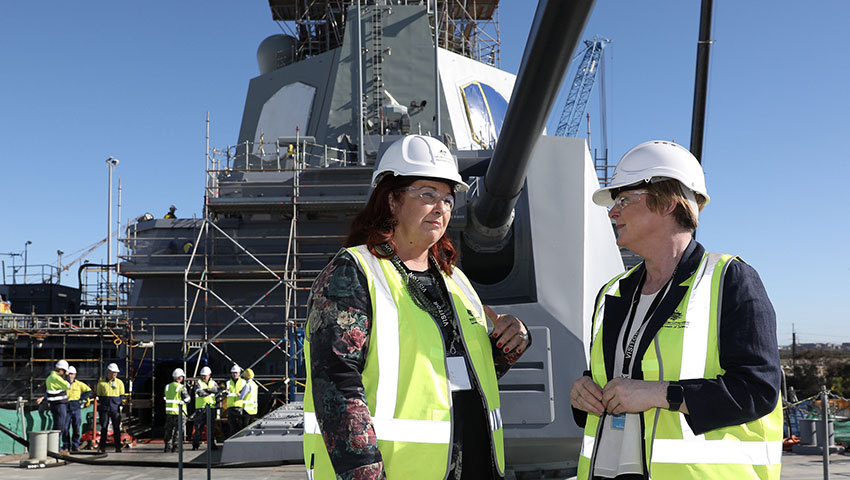Defence Industry Minister Melissa Price has entered the debate about the relocation of full cycle docking work on the Royal Australian Navy’s Collins Class submarines to remind the nation that defence jobs go beyond the submarines.
While both South Australia and Western Australia seek to set out their respective pros and cons for the full cycle docking maintenance and sustainment of the Royal Australian Navy's Collins Class submarines, Defence Industry Minister Melissa Price has sought to calm the storm and the competition.
"Rarely does a week go by without a story in The West Australian or Adelaide Advertiser about the competition for the Collins Class submarine full cycle docking work. But seldom do we hear about defence industries in both states that are unrelated to submarine maintenance," Minister Price said.
Late November saw a review by the Australian Industrial Transformation Institute of Flinders University, commissioned by the South Australian government, highlighted reasons for the role to remain in SA.
The report noted the significant cost, estimated at nearly $650 million, that would be required to "build the appropriate infrastructure in Western Australia and ensure sufficient skilled workers are available in both states during a potential move".
A key argument behind South Australia's enduring claim to retain the full cycle docking program is the resurgent mining and construction sectors in Western Australia, which it believes will place increasing pressure on the workforce available in WA.
"ASC (2019) has indicated that shifting sustainment activities from South Australia to Western Australia would initially require the recruitment, training and certification of an additional 500 employees. However, this number will only increase the Western Australian maintenance sustainment workforce to 900 employees, sufficient to deliver the FCD, but insufficient to also deliver the MCD, unscheduled docking (USD) and other sustainment activities required concurrently," South Australia's report read.
This report drew a rapid response from WA Minister for Defence Issues Paul Papalia, CSC, who was quick to counter punch with his state's argument, stating:
"Moving FCD to WA is in the national interest because it will reduce the pressure on a stretched SA workforce and protect the Attack, Hunter and CCSM programs from potential failure and cost blowouts.
"The Flinders document ignores that co-location of sustainment of submarines near operations is in line with international best practice. This provides an important human element, as submariners will spend less time away from home and more time with their families. This could assist in retaining the current Navy workforce and make a career in the Navy more attractive for future generations. This is critical when you consider Navy is doubling its submarine fleet."
Entering the melee, Minister Price was pointed in her response, reminding both sides of the immense potential provided by the government's record defence expenditure, particularly in each of the states.
"Right now in Henderson, Austal has the contract to build 21 Pacific Patrol Boats, BAE is conducting a major upgrade of our eight Anzac Class frigates, and Lürssen is preparing to build 10 offshore patrol vessels in Civmec’s new shed," Minister Price said.
"The shipbuilders, engineers, project managers and welders working at Henderson are part our 4,000-strong national shipbuilding workforce. But to deliver our Naval Shipbuilding Plan we’ll need 15,000 workers – so we have a way to go yet."
She added, "As Minister for Defence Industry, I hear more and more of these stories each week. Small businesses right across Australia who are responding to our calls to diversify and thinking about how they can play a part in the government’s record build-up of defence capability. Keep in mind our government is investing $200 billion in a record build-up of defence capability – and our Naval Shipbuilding Plan makes up $90 billion of that."
Recognising this, Minister Price called for all the states and territories to remain calm and focused on delivering for the Australian Defence Force and the national interest, stating that there is plenty to go around.
"One of the projects I want Western Australia to be more involved in is Rheinmetall’s LAND 400 Phase 2 project. The Boxer combat reconnaissance vehicles might be being assembled in Queensland, but it is companies right around Australia which are providing the parts," she said.









